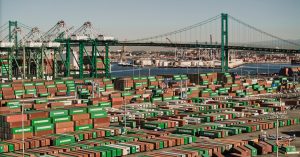“The welfare of the Nation has been made subordinate to Internationalism,” said Louis Coolidge, an ally of the League critic Senator Henry Cabot Lodge. “Our creed,” he said, “is to keep alive the fires of Nationality.”
Their movement aimed to preserve not only America’s formal sovereignty in international relations, but also the traditional forms of rule to which its white, native-born leaders were accustomed. Driven by a keen sense of the virtues of Anglo-Saxon self-governance, they understood international cooperation as a threat to their personal sovereignty as well as that of their nation.
Sovereigntist politics persisted and evolved as the features and scope of liberal and left-wing internationalism took new forms. In the 1930s, they helped lead the America First movement, which opposed entrance in World War II on the side of the Allies. Far from isolationism, sovereigntists openly championed the anti-internationalism of the fascists, supported Gen. Francisco Franco’s Nationalist rebellion in Spain, and accepted — even cheered — the regimes in Nazi Germany and fascist Italy that thumbed their noses at the collapsing League of Nations. The Rev. Norman Vincent Peale, the minister who married Mr. Trump and his first wife, Ivana, joined the sovereignty movement in this early period.
After World War II, sovereigntists launched a protracted battle against the United Nations. During Mr. Trump’s youth in the 1950s, that battle birthed a host of new organizations and leaders who took up anti-internationalist politics, many of which, like the John Birch Society, are familiar to Americans today. They resisted American participation in the International Court, which they dubbed the World Court; the North Atlantic Treaty Organization; and the General Agreement on Tariffs and Trade, the forerunner to the World Trade Organization; viewing them all as threats to American governance. In their view, the U.N.’s covenants and agencies undermined the civilizing authority of white, Christian nations by offering membership and influence to communists, Asians and Africans.
Later, many fought international sanctions on the “brave little country” of Rhodesia, as the right-wing lawyer and radio host Clarence Manion called it, likening its fight to preserve white rule to the American fight for independence. Sovereigntists led the mobilization against the 1965 Immigration and Nationality Act, the law that loosened immigration for the first time in four decades, which, they argued, embodied the ultimate plot of internationalists — eliminating national borders.








